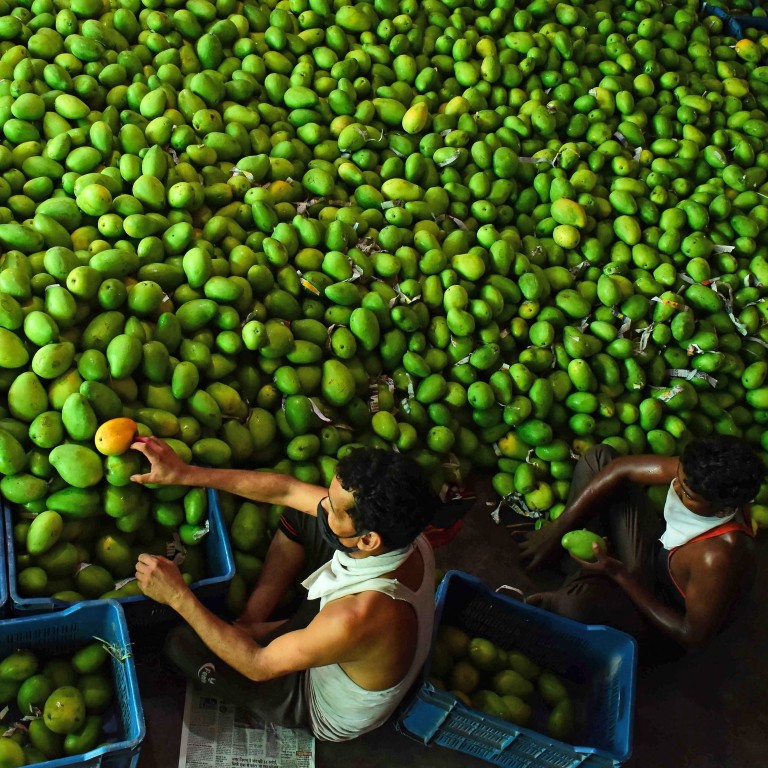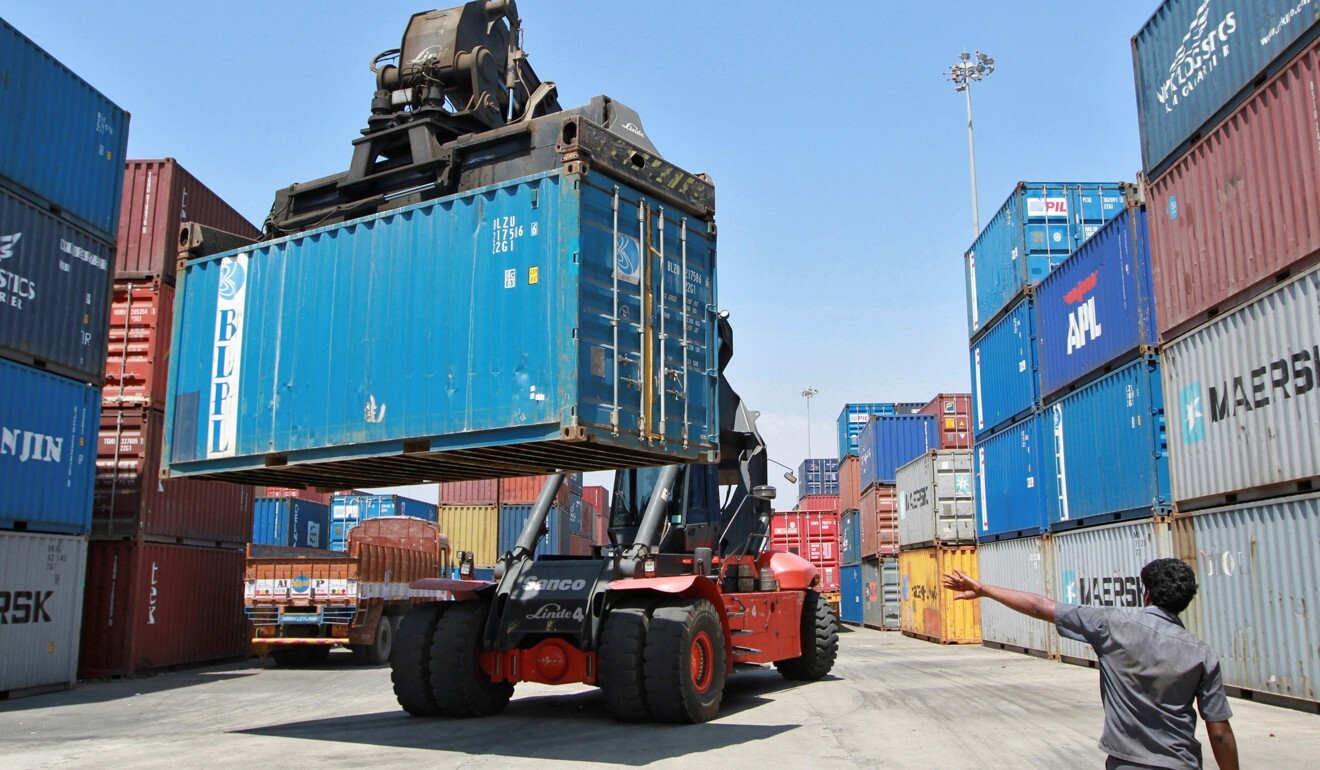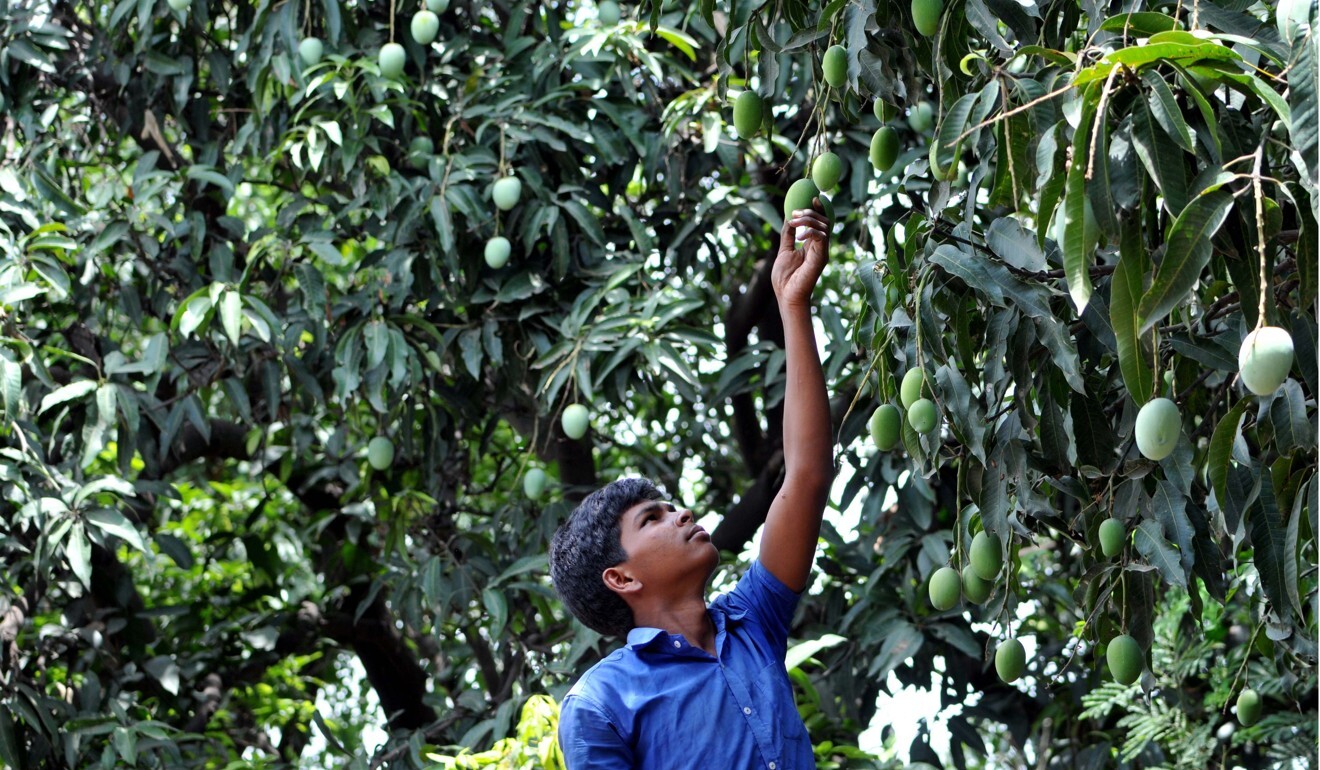
India looks to East Asia, Middle East in hunt for mango buyers
- India is the world’s largest producer of mangoes, which account for 40 per cent of its fruit exports – though the pandemic has dealt these a blow
- In a bid to boost sales, fruit-themed festivals and in-embassy tasting events have been held in Japan, South Korea and across several Gulf states
Mangoes account for some 40 per cent of India’s total fruit exports and it is the world’s largest producer of the crop, with about 21 million tonnes harvested in the year to June according to an agriculture ministry estimate.

About US$28 million worth of fresh mangoes were exported from India between April last year and this February, official figures show, against a high of around US$195 million worth of the fruits and their associated products in 2016.
Mango wars on Indian Twitter: why celebrities, politicians love national fruit
U.K. Vats, general manager of India’s Agriculture and Processed Food Products Export Development Authority, told This Week In Asia that one or two such initiatives aimed at boosting mango exports were being organised by the government body every week.
“There is now an increased interest in traditional markets like the Middle East,” he said, adding that mango exports to Japan and South Korea – previously limited to between 20-25 tonnes and 30-40 tonnes, respectively – had also shot up. “Now, we’re exploring about 100 metric tonnes each to Japan and South Korea,” Vats said.
In June, the authority organised a week-long promotional campaign in Bahrain, with 16 varieties of mango on show at supermarkets across the Gulf island nation, sourced from farmers in the eastern Indian states of West Bengal and Bihar.
Cultivars with shorter shelf lives, such as the Chausa and Langda varieties, are often put front and centre at these types of events.
‘King of fruits’
Between 1991 and 2016, the amount of land given over to mango plantations in the country more than doubled.

Ankush Saha, secretary of West Bengal Fresh Fruits and Vegetables Exporters Association, said this step was still being insisted upon by Indian authorities “even after the UK and EU relaxed the mandatory step of hot water immersion treatment this year to export mangoes”.
Calling such measures “detrimental”, he urged the government to do more to help India’s struggling mango exporters by focusing on fixing issues that already existed, not just hunting for new markets.
Ranjan Kedia of the RK Agri Biz company in Bihar state, which ships about 5,000 tonnes of mangoes annually, said exports had suffered this year because of excessive rainfall late in the growing season that had made the fruits ripen faster and lowered their shelf life.
Domestic demand had also taken a hit following lockdowns imposed through the “peak season” for mangoes, he said, referring to the months of March through May when India was grappling with a ferocious second wave of the pandemic.
Indians know the Alphonso is the ‘king of mangoes’. If only they could buy some
Exporters, in turn, have pivoted towards processed products such as purée and fruit concentrate rather than shipping fresh mango fruits, according to Kedia.
“The processing has been quite large [this year]. We expect the turnover from processed mango products will be at least 25 per cent higher. It is a significant jump due to the smaller demand for fresh fruits,” he said.

